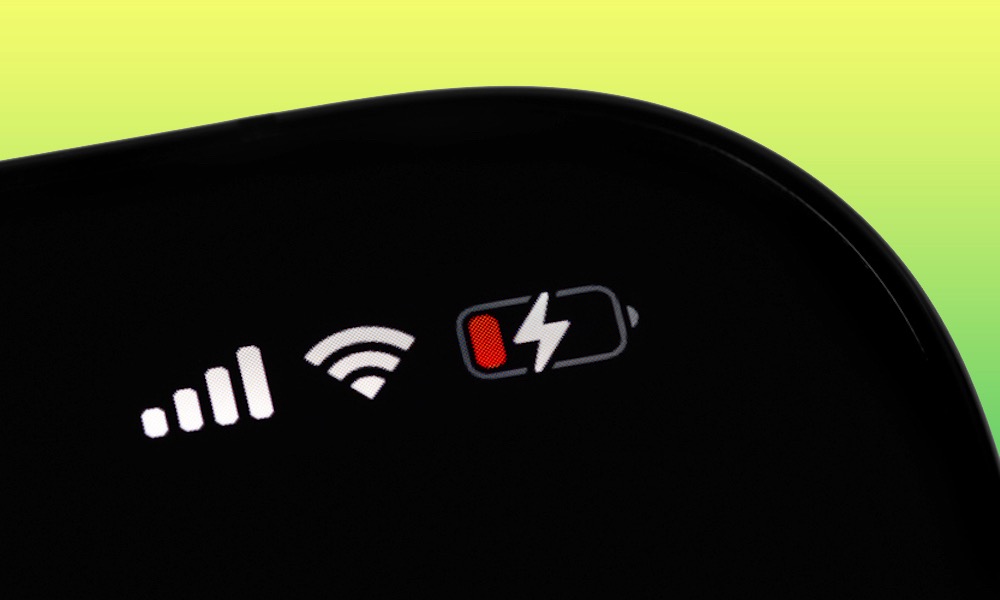Is iOS 17 Draining Your iPhone’s Battery? Don’t Worry, It’s Not Planned Obsolescence
 Credit: Primakov / Shutterstock
Credit: Primakov / Shutterstock
Toggle Dark Mode
It’s the iOS upgrade shuffle. You’ve upgraded to iOS 17 this week and are seeing your iPhone’s battery drain faster than usual. Don’t worry though, as this is normal and isn’t planned obsolescence on Apple’s part.
Over the years, we’ve seen complaints about iPhone battery life following the release of a major iOS update. This is typical and there is actually a good explanation for the shortened battery life. For most, it will be a short-term issue, but owners of older iPhones may have to learn to deal with a performance hit.
The main reason that iOS 17 is sapping your iPhone’s battery much quicker is that Spotlight is reindexing all of the files stored on your iPhone. Spotlight has to rebuild its database, so it can return those fast search results we all use and love.
There are thousands and thousands of files stored on your iPhone, even if you have a low-storage model, and indexing all of those files can take quite a bit of time, potentially taking a few days or even as much as a week to complete the task. Unfortunately, there is no way to speed up the indexing process, so try and be patient.
Related: 10 Charging Accessories You Need But Didn’t Know Existed
During this indexing process, you may notice your iPhone is a bit slower in returning search results and performing other tasks. Your iPhone’s battery charge may also be consumed at a faster rate than normal.
Once your device has been fully indexed, the processing load will drop, meaning your iPhone should respond faster while also returning to close to typical battery life.
While you should be patient, if you continue to see your iPhone’s battery die faster than before the update, you should contact Apple’s support folks and report the issue. Apple support will document your issues, allowing Apple engineers to have data to work with to figure out a possible fix. Remember, Apple can’t fix the issue if they don’t know about it.
If you have one of the older iPhone models that are still compatible with iOS 17 and you continue to see shortened battery life and reduced performance, it could come down to a combination of new features in iOS 17 and the age of your iPhone.
While I can almost hear some of you screaming “planned obsolescence” it really isn’t an evil plot on Apple’s part to force you to buy a new iPhone. Your iPhone is like any computer (because that’s what it is, a computer) that has an older and slower processor and lesser amounts of RAM than newer models, and it is beginning to show its age.
Over the years you’ve had your iPhone, it has received repeated updates to iOS, while apps have grown more demanding, requiring your iPhone to work harder. The harder your iPhone works, the longer the processor has to toil to get results, putting an increased drain on the device’s battery.
Sure, even iPhones that are just a few years old can take a performance and battery hit, but it’s a little less noticeable on the new iPhone models. Older iPhones sport slower A-series chips, have less memory, and usually have smaller battery capacities. This leads to processing delays being much more noticeable.
As noted by Appleinsider, there is a way to avoid the upgrade slowdown shuffle — just stick with iOS 16. But, do you really want to miss out on all of that iOS 17 goodness?







